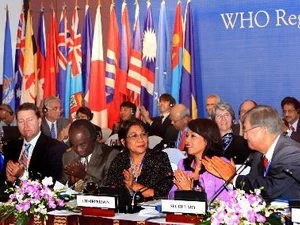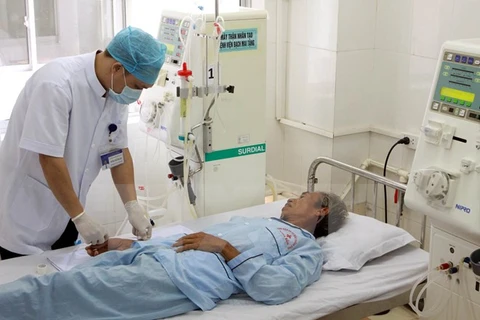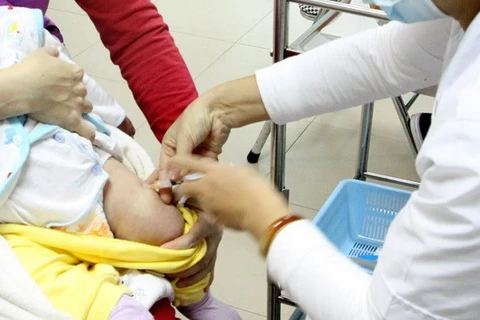Geneva (VNA) – Vietnam will increase the number of communal health care centres in charge of preventing, managing and treating several non-contagious diseases like high blood pressure and diabetes in the next 12 months.
This is one of the three concrete steps the country has committed towards universal health coverage. Such objectives were presented at the 71st World Health Assembly at the UN headquarters in Geneva, Switzerland, on May 22 by Deputy Health Minister Le Quoc Cuong.
The country also aims to expand health insurance coverage from 86.4 percent in 2017 to 88.5 percent at the end of 2018, according to the official.
Besides, Vietnam will mobilise resources through sin-taxes on tobacco and alcohol and increase public funds, especially health insurance fund, to cover primary care services, he said.
Cuong called for further financial and technical support from the World Health Organisation (WHO) and other development partners to implement the commitments.
He stressed that leaving no-one behind is a core principle of universal health coverage, adding that Vietnam has met 73 percent of public health needs, a relatively high rate compared to other countries in the Western Pacific region.
However, he said, about 19 percent of Vietnamese families have to spend more than 10 percent of their income on health services, an unreasonable rate as evaluated by the WHO.
Given this, the country is redesigning local health care service systems which can provide integrated care, while allocating financial resources reasonably to handle this issue, he said.
Vietnam is one of the 34 members of the Executive Board of the WHO for 2016-2019.
The 71st World Health Assembly discussed many global matters, including the WHO’s five-year strategic plan to help countries meet the health targets of the Sustainable Development Goals (SDGs), along with vaccine and medicine shortage and access, and polio elimination, among others.
Addressing the event, WHO Director-General, Dr Tedros Adhanom Ghebreyesus pointed out challenges to human health globally.
He presented an ambitious agenda for change that aims to save 29 million lives by 2023. The WHO General Programme of Work, designed to address these challenges and accelerate progress towards the SDGs, centres on the “triple billion” targets: 1 billion more people benefitting from universal health coverage, 1 billion more people better protected from health emergencies and 1 billion more people enjoying better health and well-being.
"We are transforming how we work to achieve our vision of a world in which health is a right for all. We are changing the way we do business," Tedros said.-VNA
VNA























